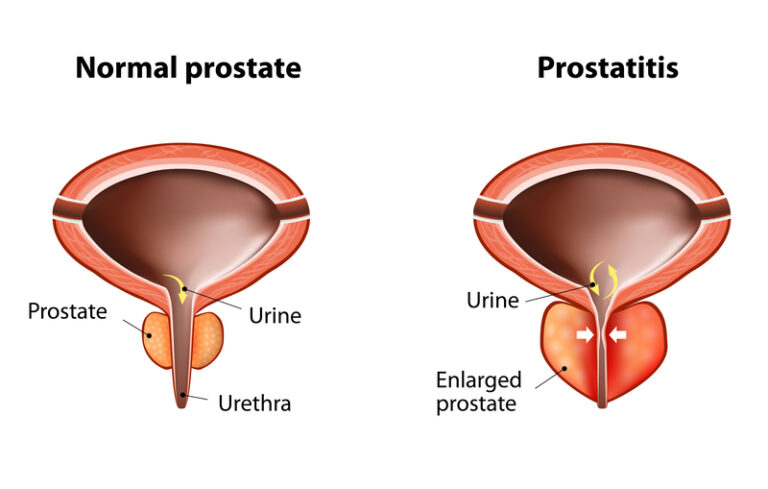The prostate gland is a small gland located below the bladder of a male – sorry ladies – you don’t have one! When the internet first started and we didn’t yet know not to trust everything we read (now I’m really dating myself!), a woman came in as a new patient complaining that she had prostatitis. After that first claim, she thanked me for not laughing and offered an explanation of why she was certain she had this disease. After she finished, summarizing her symptoms and the fact that she researched this well on the internet, I had no choice but to tell her she didn’t have one. She sat stunned, wondering why, after having seen many doctors for this, that no one had told her that. It was my first lesson in “Doctor Internet” diagnosis.
There are two main categories of prostatitis (inflammation of the prostate gland) – Acute and chronic. Acute happens quickly with intense pain and urinary difficulty. It is general the result of an infection (bacterial or fungal) and affects men of all ages. Diet can trigger this type as well. Caffeine, alcohol, spices, table salt and gluten are all considered inflammatory for the prostate gland.
The second is chronic. This usually develops over time, affecting mostly men after the age of 50 with 50-60% of males getting it. An enlarged prostate may be referred to as BPH – Benign Prostatic Hypertrophy. BPH won’t necessarily become cancer, but can coincide with cancer. Risk factors are underlying asymptomatic infection, obesity, sedentary lifestyle, diabetes, high blood pressure, high sugar diet, and a diet high in grains, especially gluten.
Symptoms include thin stream when urinating, urinary frequency, pain or nighttime frequency; pain or pressure in lower abdomen, rectal area or perineum, low back or groin; blood in urine or urethral discharge especially if associated with a fever (acute infection).
Supporting prostate health can be as simple as including pepitas (green pumpkin seeds) in the diet daily. They contain some nutrients with great benefits for the prostate. Also, sufficient zinc is important in the diet (nuts, seeds, legumes, fish (also fish oils), quality meat, eggs). Cruciferous vegetables (broccoli, cauliflower, Brussels sprouts, cabbage, kale) and tomatoes show good benefit for supporting prostate health.
Acupuncture has been used, literally for centuries, for many health conditions, including all forms of prostatitis. Acupuncture reduces the inflammation and swelling and supports healthy endocrine (hormonal) function which is important when trying to resolve prostate issues.
If you are experiencing a lot of pain or have blood in the urine, it is vital that you see a Urologist to rule out cancer or out of control infection. And while you’re waiting, stop eating the inflammatory foods listed above, drink lots of fluids, eat the good foods listed above, eat lots of fiber, avoid constipation and go see your favorite acupuncturist!
©2022 Holly A. Carling, O.M.D., L.Ac., Ph.D.







